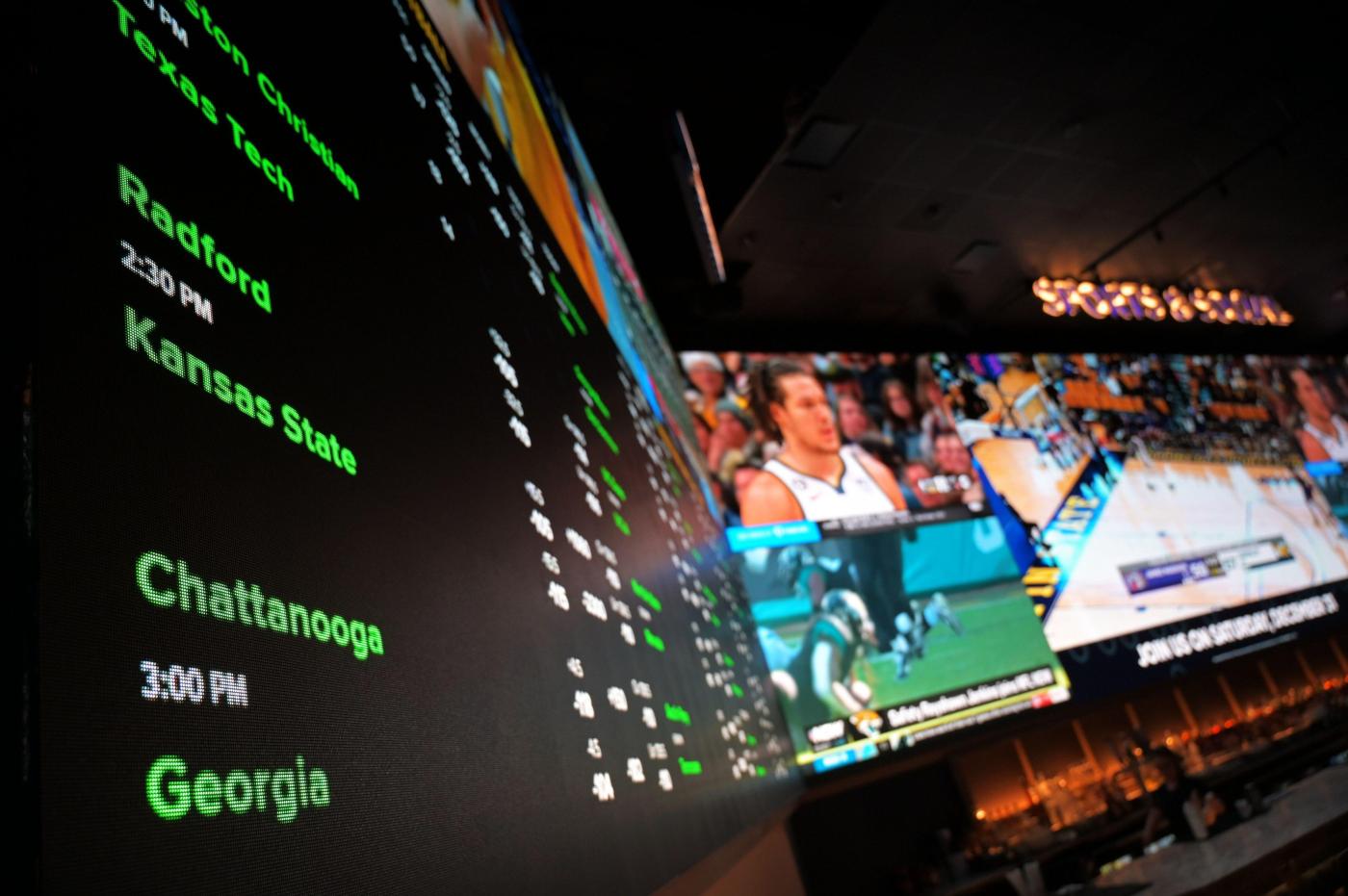
It’s not over for legal Minnesota sports betting this year, but chances still murky
A bipartisan push to legalize sports betting in Minnesota still has momentum at the Legislature, but the odds it’ll succeed this year are still unclear.
Thirty-eight states have legalized gambling on sports in some way since 2018, including all of Minnesota’s neighbors.
Efforts in the Minnesota Legislature have failed despite optimism after the state’s tribal gaming association said it would back legalization two years ago — a key factor in gaining support from a wide swath of Democrats.
Headwinds
This year, proposals have advanced in both House and Senate committees, but face headwinds once again as lawmakers struggle to balance the disagreements between tribal casinos and horse tracks and address concerns from charitable gambling groups.
The two tracks — Canterbury Park in Shakopee and Running Aces in Columbus — say access to the biggest expansion of gambling in decades is key to their survival. But the Minnesota Indian Gaming Association wants to preserve its control over most gambling in the state.
And, this year there’s been an expanded debate involving gambling addiction.
Sports betting is not a party-line issue. Some Democratic-Farmer-Labor senators oppose legalization because of what they see as the harm it could do to vulnerable communities.
Since the DFL has a one-seat majority in the Senate, any proposal that gets to the finish line will need Republican backing. And in turn, the DFLers in control of state government will have to address concerns of the tracks and charitable organizations to get GOP votes.
Proposals
Concerns about problem gambling also have led to alternative proposals, including a sports betting bill from Sen. John Marty, a Roseville DFLer who chairs the Senate Finance Committee. The committee is a key hurdle any sports betting bill must clear before seeing a vote of the entire Senate.
Marty’s bill would ban betting on college sports, and place restrictions on sports betting apps including a ban on mobile push notifications. It also includes a 40% tax rate — much higher than any of the other proposals at the Capitol.
Sen. Matt Klein, DFL-Mendota Heights, is a sponsor of the Senate sports betting bill that is now just a committee stop away from making it to the Senate floor. Klein said with various proposals floating around there’s still work to be done before a final product can move forward. There’s about a month left before the close of the 2024 session.
“We continue our discussions and are trying to get the best product out there for Minnesotans,” said Klein, adding, “I’m still optimistic.”
In its current form, Klein’s bill taxes sports betting at 20%, which would bring in about $18 million annually. Of that amount, 5% goes to the racetracks and 10% goes to addressing problem gambling. Other amounts go to youth sports and the state tourism agency for sports and events grants.
That’s lower than the original projected revenue of $40 million, but the amount dropped because of an amendment adopted in March by the Senate Commerce Committee that placed limits on in-game bets.
The sports betting industry doesn’t support the ban on what are known as prop bets, where a person can place live bets on aspects of a competition that aren’t tied to the outcome, such as points scored by a certain time in a game.
Meanwhile, the tribes expressed concern about the ban at the time, but did not oppose it outright.
Charitable gaming
On the House side, Rep. Zack Stephenson, DFL-Coon Rapids, is advancing a bill that would address the concerns of charitable groups, who say they face significant revenue losses after the state changed rules on e-pulltabs last year.
In an agreement Stephenson announced in March, charities who lost revenue due to changes in e-pulltab rules would get $40 million in tax cuts which would be financed by a 20% tax on sports betting revenue.
The House measure has not adopted the same in-game betting restrictions as the Senate versions.
“The tax cuts in this agreement will be a major benefit to organizations ranging from American Legions, to youth hockey clubs, to organizations that serve people with disabilities,” Stephenson said in a news release at the time.
Gambling clashes
And as the sides try to find a solution, the tracks and tribal casinos are clashing on other fronts — two of which emerged just this month.
This week, Running Aces filed a federal racketeering lawsuit against three tribal casinos, alleging they offer gambling options beyond those permitted in their agreement with the state of Minnesota permitting them to offer gambling.
In the lawsuit, Running Aces alleges Grand Casino in Hinckley and Mille Lacs and Treasure Island Resort and Casino, which belongs to the Prairie Island Indian Community, offered Three Card Poker and Ultimate Texas Hold’Em, variants of poker not covered by their state-tribal gaming compacts.
Sen. Klein said he doesn’t think the lawsuit will have an effect on what happens at the Capitol. Though others said fights over other pieces of gambling turf could complicate negotiations.
“It makes it more challenging to have some of these conversations about working toward towards a solution,” said Sen. Jeremy Miller, a Winona Republican who also has a sports betting bill. “But again, I still think it can be done; I think there is a solution out there that benefits the tribes, it benefits the tracks and it benefits the charities.”
The tribes and tracks also are at odds over a new expansion to gaming at horse tracks approved by the Minnesota Racing Commission earlier this month. Under the new rule, Running Aces and Canterbury will be permitted to have 500 machines for historical horse racing, where bets can be placed on races from the past.
Minnesota Indian Gaming Association condemned the move, calling it an “extreme violation” of legislative authority as lawmakers had not directly authorized historical betting. They argue the betting terminals are essentially the same thing as slot machines, and therefore violate tribal monopoly on video gambling.
DFL lawmakers plan to take action on the issue before the end of this session, said Klein.
Related Articles
Jordan Rodell: Proposed Minnesota social media legislation would undermine First Amendment protections
Gov. Tim Walz says copper wire theft bills are ‘top priority,’ urges legislators to move them forward
Jacob Wetterling Resource Center director honored with national award
DFL disavows local endorsement of northwestern Minnesota candidate with assault conviction
Other voices: Legal marijuana is making roads deadlier


